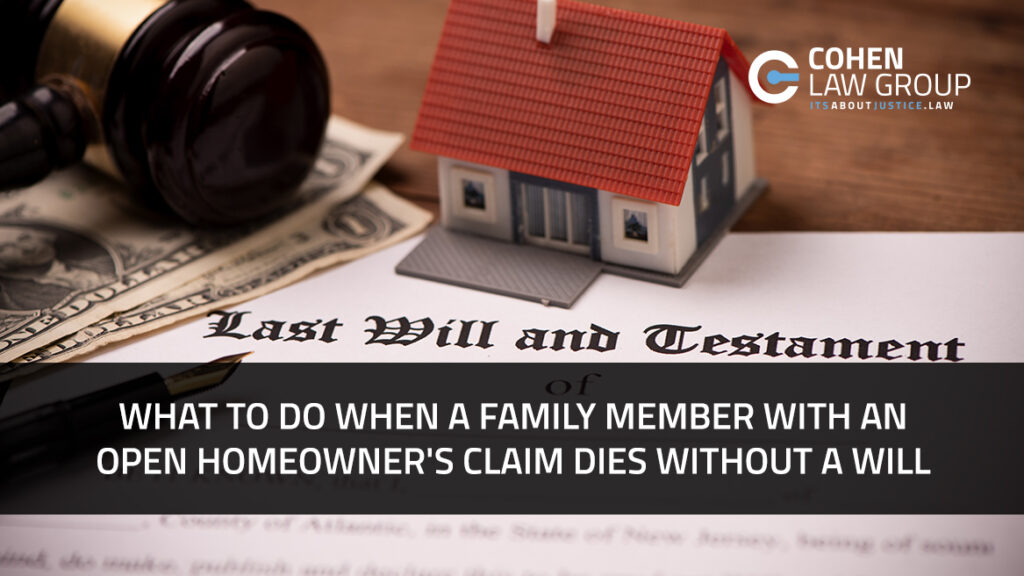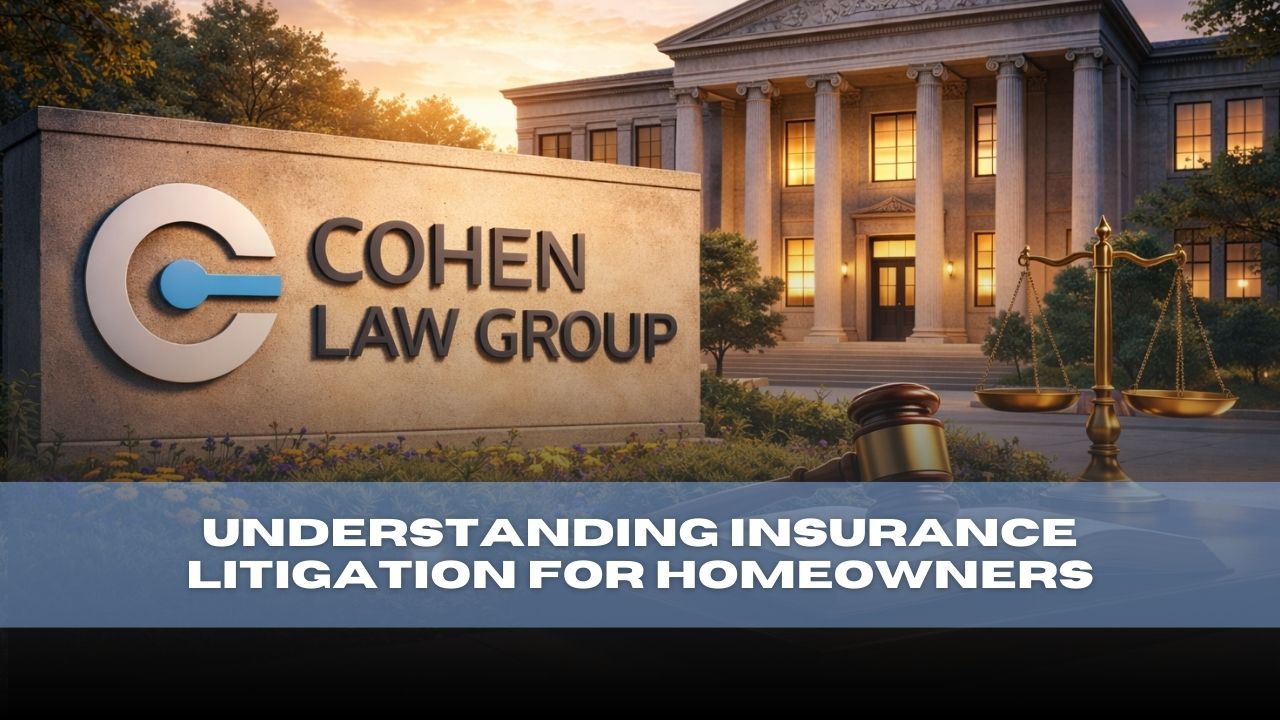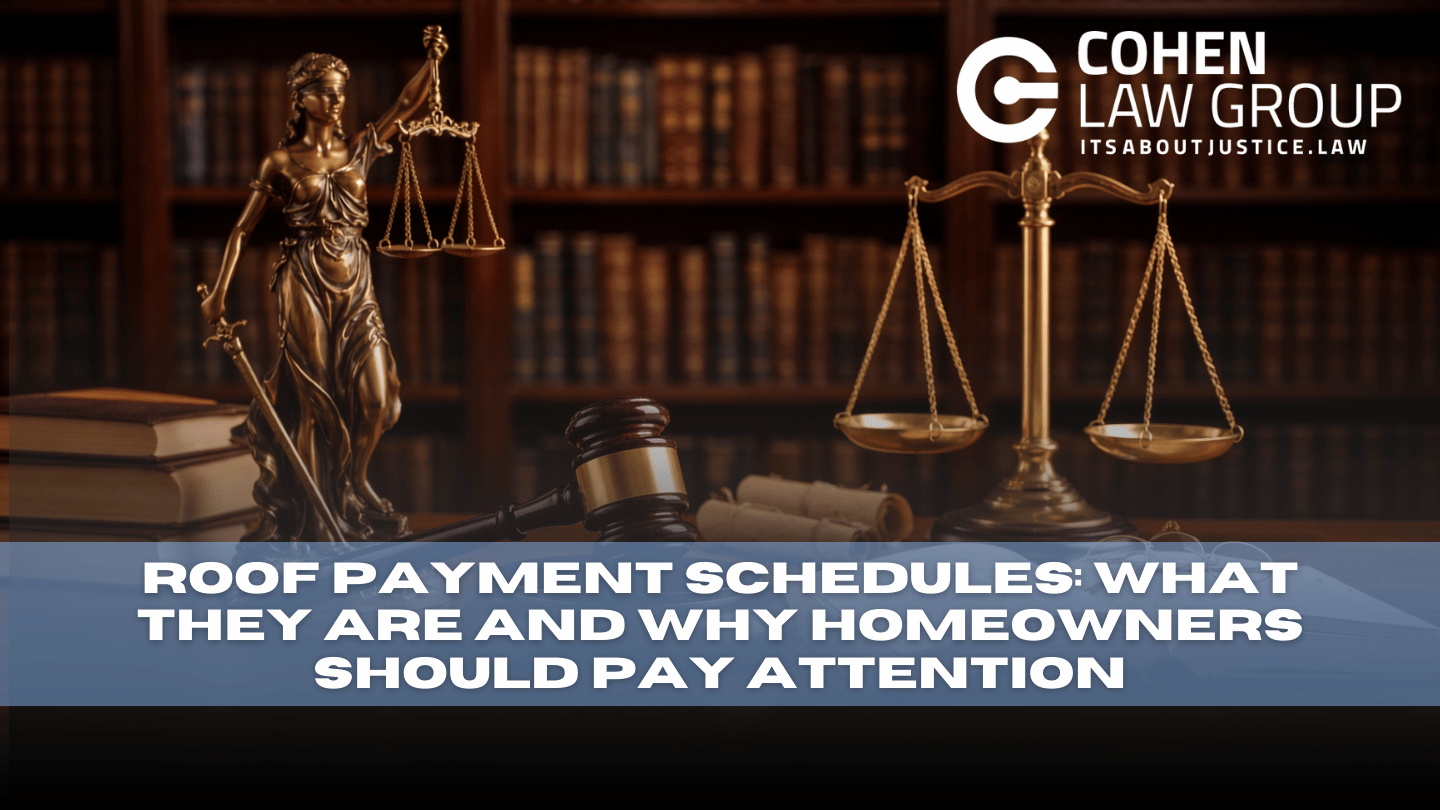Due to the global Coronavirus pandemic, people who would otherwise be expected to live a long fruitful fulfilled life are finding themselves on death’s door and sometimes crossing over that threshold permanently much sooner than anticipated. Many people who own real property in the state of Florida were completely unprepared and had no estate planning prepared as they thought that they had plenty of time to get those things in order.
The first thing you should do if your family member died and had an open homeowner’s insurance claim or any litigation for that matter is to let the attorney that is working on the case know about that family members passing. The attorney will need to file a “Suggestion of Death” with the Court which officially advises the Court and all the other Parties that one of the Parties to the action is now deceased. The attorney will also need to determine who the proper parties to the homeowners insurance claim will be now that one of the property owners is deceased. The proper parties to a homeowner’s insurance claim are the property owners, the named Insureds of the policy (usually the same as the property owners), and the Insurance company. Therefore, it will need to be determined how the real property was titled in order to determine if an estate will need to be opened to distribute the property to add additional parties to the litigation or if the property will pass by law outside of the probate.
There are several ways that people can own real property in Florida, however, the most common are Tenants by the Entireties, Joint Tenants with Rights of Survivorship, and Tenants in Common. If a property is owned by a husband/wife, wife/wife, husband/husband, or legal partner/legal partner, then they own the real property as Tenants by the Entireties and upon one spouse’s death the property is by law automatically owned by the other spouse. All that is needed to be done to get the property solely in the name of the other spouse is to record the death certificate in the County Official Records in the county in which the real property is located and then the tax collector and property appraiser will update their records to reflect the remaining spouse as the sole owner. In the case where your spouse dies and you own the property as Tenants by the Entireties, after advising the court of the spouse’s passing the deceased spouse can be dropped as a party to the case.
Similarly, when someone owns a property as Joint Tenants with Rights of Survivorship (“JTROS”), all the parties that are on the deed own the property equally and upon the death of one of those parties than the other parties automatically own the real property by operation of law. All that needs to be done is the death certificate will need to be recorded with the County Official Records in the County where the real property is located to get the deceased person off the property and tax rolls as a property owner. In the case where one of the property owners die and you own the property as JTROS, after advising the court of the decedents passing the deceased party can be dropped as a party to the case.
Unfortunately, if someone passes without a will and owns the property as Tenants in Common, a Florida intestate probate governed by Florida Statutes § 732 will have to be completed in order to determine who the correct heir to the decedents portion of the property is. If a probate is needed, there are several types of processes of opening a probate estate in Florida. Which process is needed is largely determined on the particular circumstances surrounding the decedent’s individual situation. Florida probate alternatives include:
- Summary Administration – Summary administration is a shortened form of probate. It only applies if the decedent has been dead for more than two years or if the total value of the decedent’s property (exclusive of exempt assets) does not exceed $75,000.00.
- Formal Administration – Formal administration is the most common type of Florida probate proceeding. A formal administration will always clear title to a decedent’s assets, no matter the value. Because of this, formal administration is the best form of probate for most estates.
- Ancillary Administration – Ancillary administration is administration of the estate of a decedent that did not live in Florida. In many cases, an ancillary administration does not differ substantially from a formal administration and it can also be done as a summary administration if the decedent has been deceased for over two years.
Once the proper type of administration is figured out, the probate case must be filed to determine who has the rights to the real property at issue in the homeowner’s insurance claim under the Florida Intestate Rules. The Florida Intestate Rules are as follows:
- A surviving spouse of the decedent will receive the entire estate if the decedent had descendants that are also descendants of the surviving spouse and neither the decedent nor the surviving spouse had any other children.
- A surviving spouse of the decedent receives the entire estate if the decedent has no surviving lineal descendants (children, grandchildren, great-grandchildren, etc).
- If the decedent is survived by both a spouse and lineal descendants and any of the lineal descendants are not also a descendant of the spouse, then the spouse is entitled to one half of the estate, and the descendants share the balance in equal shares.
- If there are lineal descendants but no surviving spouse, then the estate is shared by the lineal descendants.
- If there is no surviving spouse and no lineal descendants, then the estate passes to lineal ascendants (parents, grandparents, great-grandparents, etc.) and collateral relatives (siblings, aunts, uncles, etc.). This means that if the decedent’s parents are alive then they are entitled to the estate. If the parents are not alive, then the estate passes to the decedent’s brothers and sisters and their descendants, in equal shares.
The Probate Court will determine the Correct Property owner and this could take time depending on the complexity of the estate of the decedent. It is possible to complete a probate using the local county clerk’s self-help forum, however, one should always look to retain a knowledgeable probate attorney to help expedite the probate process, especially, if there is an open homeowner’s insurance litigation claim as the new property owner will need to be included in the homeowner’s claim litigation as expeditiously as possible.
Kendra J. Taylor, Esq.
DISCLAIMER: This website is for informational purposes only and does not provide legal advice. Please do not act or refrain from acting based on anything you read on this site. Using this site or communicating with Cohen Law Group through this site does not form an attorney/client relationship. This site is legal advertising. Please review the full disclaimer for more information by clicking here.








